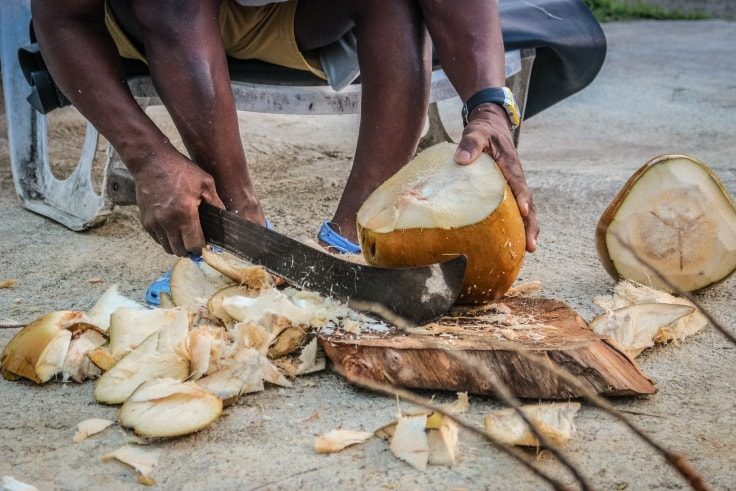Answering All Your Burning Questions About Coconut Flour

Alternative flours are increasingly common nowadays and coconut flour is among the most popular ones. Here’s what you need to know about it!
Yes, it may seem weird to think that coconuts can be ground down into flour. However, they can and it’s a very versatile product.
So let’s find out more about this healthier alternative to the regular flour you’re already using for all your baked goods.
What Is Coconut Flour?
As the name suggests, this is a soft flour obtained from dried coconut meat. This is, of course, after the coconut milk has been squeezed from the meat, then the meat died under the sun or in low temperatures to preserve its nutritional value.
The dried meat is then ground to produce soft flour, a common ingredient in many baking recipes like these gluten-free coconut flour pancakes.
Is It Low In Carbohydrates?
One heaped tablespoon of coconut flour contains approximately 1.5 grams of carbohydrates. This, however, varies from one brand to the other.
It is also low in sugar, with one tablespoonful of the same containing around 1g of sugar.
Although there are no specific guidelines on how much carbs should be present in low-carb products, this should give you an idea of how much there is in this flour.
Consumed in moderation, coconut flour is often considered a low-carb food.

Does It Contain Saturated Fats?
This flour is particularly high in natural fats. One hundred grams of flour packs around 14g of fats, with around 13g of these being saturated fats.
Again, this varies from one product/brand to another, with some brands recording up to 65g of fat in their flour.
That said, it would be advisable to check the labels before buying the product.
Coconut flour, however, contains medium-chain triglycerides, and healthy fats that pack healthy anti-inflammatory properties, support healthy cholesterol, and also play a part in weight management.
While coconut may help with weight loss, experts recommend using the flour sparingly to avoid reverse results.
Is Coconut Flour Gluten-Free?
Although pure coconut oil doesn’t contain flute, some brands may add ingredients known to contain gluten. That said, you should take the time to read the fine print, especially if allergic to gluten.
You also should check to see if the manufacturing company handles products known to contain gluten. This reduces the risk of handling a product contaminated with the same.

Is It Fiber-Rich?
Coconut is particularly high in dietary fiber, with one heaped tablespoon containing around 4.5g of fiber. This is 10% of the recommended daily allowance for fiber in adults.
That said, many people today hardly get enough dietary fiber in their system, one of the reasons the government and health experts recommend adding foods rich in this compound to your diet plan.
While you may know this already, dietary fiber is essentially required for blood sugar control, digestion, and reduction of the risk of heart-related conditions.
Adding fiber to your diet plan also treats/prevents constipation.
Does It Contain Any Proteins?
Coconut flour is one of the best sources of plant-based proteins. It however only contains 5 of the 8 essential amino acids to be considered a complete protein.
100g of coconut flour contains around 18g of proteins. Proteins are the body’s main building blocks hence vital for proper cell and tissue growth.

Does Consuming This Flour Affect Your Blood Sugar Levels?
Coconut flour contains only a small percentage of sugars with a glycemic index of 51. That said, you shouldn’t experience a spike in blood sugar levels from having a meal prepared with coconut as an ingredient.
The sugar levels are evened out by the high fiber and saturated fat content.
Where Can I Buy Coconut Flour?
Pure coconut flour is free of gluten and considerably a much healthier option in the kitchen. Many health-conscious individuals have the flour stocked up in their kitchens too.
So you can buy your supply of the same from health food shops, supermarkets, and online as well.
As mentioned earlier, it would be best to read the label before making the order to ensure you are ordering the right product.